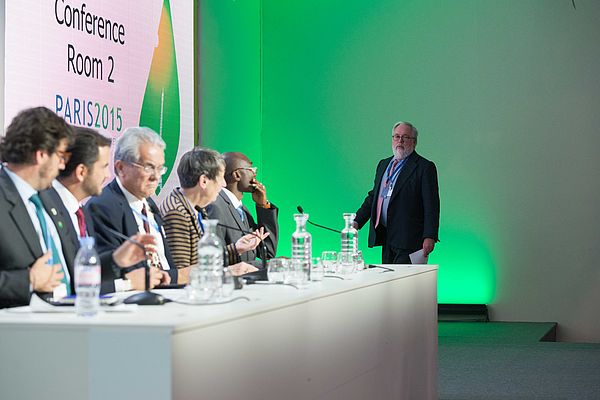We seem to be in the middle of a Cinderella story. Energy efficiency has always been the poor relation in energy policy. It was often dismissed as not "serious" because one had to depend on the action of millions of consumers, one had to contend with poor data for policy and programme feedback and one had to contend with goals but no certainty in achievements.
The energy efficiency community has argued for year, no decades, about the achievements and the wider reasons why our economies need energy efficiency. No doubt there has been much progress but there has always been this lingering doubt. Last year, however, we had a major global climate change agreement in Paris and everyone looking at every mitigation option. Well, not surprisingly, energy efficiency was given more attention. Earlier, G20 heads of government met and endorsed the progress made by the energy efficiency action plan that had only been approved the year before. We get the Energy Union announced in Brussels and the commissioners have come out with the expression "energy efficiency first." In December, we had the new executive director of the International Energy Agency come out calling for his agency to become "... the central bank of energy efficiency... where we can transform the energy efficiency policies and give (them) to the other countries."
Recently, we have seen the Commission consider more ambitious energy efficiency scenarios to see whether a more ambitious target is possible. We have the Commission, following public consultation, preparing a new energy efficiency package that will propose recommended changes to its flagship directives on energy efficiency. And there is a greater effort both within Europe and globally (in part through G20 and UNEP Financial Initiative) to seriously tackle the problems of adequate financing. Remember that EEIP facilitated an event last year at EU Sustainable Energy Week, to address these financing concerns.
And it is not just in Europe. We are seeing the Obama Administration even side-stepping the Supreme Court to build the momentum for greater energy efficiency. This year, the G20 is chaired by China and there is every indication that it is giving energy efficiency the priority it deservies. If you add up all these commitments and "good words", they make a powerful statement. They are starting to give some long-term signals that should help.
Now, what do you we need to ensure that energy efficiency really has reached the tipping point? There are four actions that would get the ball rolling for the industrial sector. First, for both energy-intensive and less energy-intensive companies, we need better benchmarking to know how companies are really improving. This means that we need to see more attention paid to collecting good, robust data, on an equivalent basis as we see for the energy supply sectors. Second, we need further support - and not always financial - to improve awareness of energy efficiency opportunities. This includes greater help in ensuring all companies implement good energy management systems. Third, we need a new generation of technical skills and knowledge at the university level where the emphasis is on improving energy performance. Fourth, we need governments to ensure there are long-term policy signals to give industry the confidence to invest in the infrastructure of the future. Once we see such a commitment, then we will definitely know we have reached the tipping point.
























































